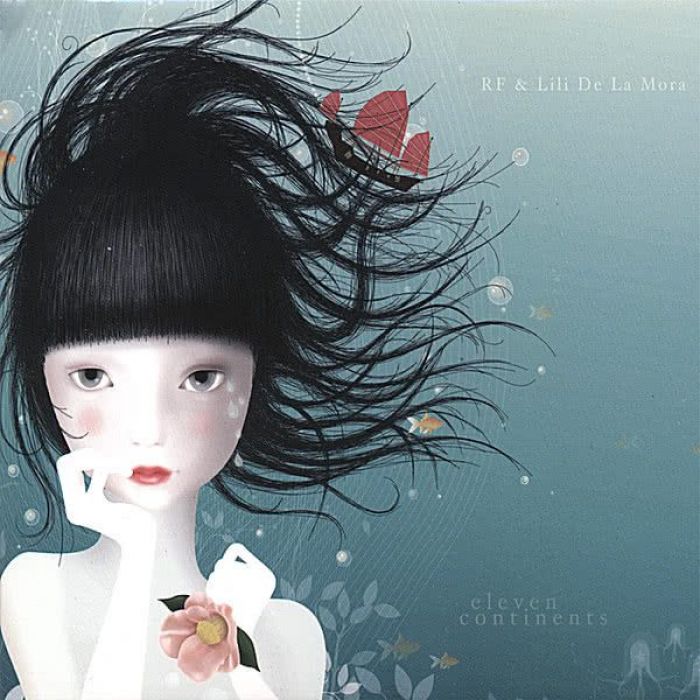Eleven Continents by Ryan Francesconi, Lili De La Mora (Review)

Ryan Francesconi has long been a favorite here at Opus, due the delicate and intricately detailed electronica that he’s released under the “RF” moniker. However, his latest release — a collaboration with The Year Zero’s Lili De La Mora — finds Francesconi removing virtually all electronic elements from his music. There’s nary a hint of glitch, glurp, or digital processing to be found on any of the tracks on Eleven Continents.
But that’s about all that’s changed. Francesconi’s acute attention to detail is still very much in effect. And even though it’s a largely acoustic album, and largely removed from Francesconi’s usual sound palette, the overall tone of Eleven Continents is very similar to that of Interno or Falls. Francesconi is still as instrospective and elegiac as ever, perhaps even moreso. And even though the music is, technically, more stripped down than Francesconi’s usual output, one would never mistake it for being bleak or barren.
In addition to Francesconi’s deftly picked guitar and De La Mora’s breathy voice, wisps of cello, trumpet, flute, and harp drift through the album gentle as a breeze, never upsetting its delicate balance. As is always the case with Francesconi, the arrangements possess both an assuredness and a sense of restraint; each instrument is present only to the extent to which it’s needed for the most aesthetic impact, and once through, is softly and quietly retired. The result is music that moves efficiently without sounding hollow and artificial, music that is full of embellishment while sounding neither gaudy nor ostentatious.
“Through the Trees” develops into a fully fleshed-out piece, replete with shimmering guitars and brushed percussion, without the listener ever being aware of the build-up until they’re hit with the full, lovely weight. “Fences” is highlighted by quick, playful little ripples of acoustic guitar that gust over the song’s surface like leaves rustling in a storm; meanwhile, Darius Gottlieb cello provides a slightly more reserved counterpoint in the background.
“Hundreds of Threads” moves with the meditative grace of a Zen ceremony, the plucked guitar notes silver as bells. Exotic dulcimer and sitar-like sounds seem to rise off of “Cherry Park“ ‘s service like clouds of incense, their intangible nature a perfect balance to the sharp, clear tones of the trumpet that eventually come ringing forth. And the piping flutes and slightly more up-tempo rhythms of “Fascinated” recall Eric Matthews at his finest.
The album’s finest moments, though, come when the silvery tones of Joanna Newsom’s harp join the mix. The album’s title track unfurls to reveal a rushing, ever-growing spiral of graceful guitars, playful harp strings, and fragile, pensive vocals. Every note sounds as if it has been bathed in silvery twilight, and, at the risk of sounding all psych-folk-y, it’s difficult not to picture ethereal creatures caught up in a slow, stately waltz in some forgotten sylvan glade. So spellbinding is the song that its abrupt ending is jarring in an almost physical manner.
Lately, Lincoln has been surrounded by rainclouds on a daily basis — if you didn’t know better, you’d swear the entire city had been transplanted to somewhere in the Pacific Northwest. Deep down inside, we know it’s spring, that the warmth is soon to return. Meanwhile, the skies are still grey as slate and a chilly wind makes its way through the buildings.
The contrast is so sharp, the mixture of the seasons — the chill of winter with the green of spring — quite evocative. Eleven Continents is a perfect soundtrack for days such as these, the melancholy arrangements meshing quite nicely with the forlorn skies even as the gentle and soothing vocals point the way towards brighter — and warmer — days.